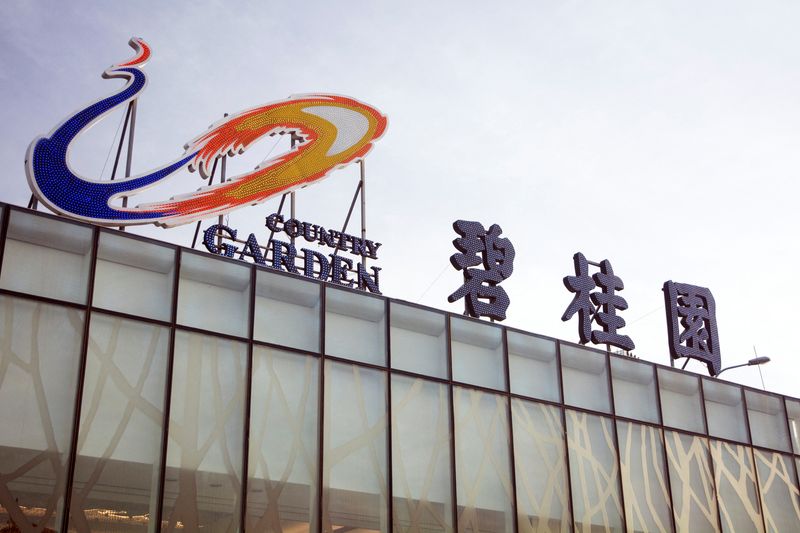By Marc Jones and Andrew Galbraith
SHANGHAI/LONDON (Reuters) -China's biggest homebuilder by sales, Country Garden, scooped up $10 million of its own bonds on Monday as the country's ongoing property crisis sent then sprawling again.
Last week was the worst on record for Country Garden's bonds and fresh falls of up to 17 points on Monday left most of its international market debt at 25-35% below its face value.
Analysts cited reports that it had dropped plans to raise $300 million last week after debt market investors had shown insufficient appetite.
A spokesperson at Country Garden responded to the reports saying the company had no plan to sell a convertible bond at present.
"It just seems to be the fear factor playing out," said Seaport Global analyst Himanshu Porwal. "People are just marking things down as much as they can".
Well after Asian markets closed, the firm said it had bought back $5 million worth of its July 2022 notes and $5 million of its April 2026 notes from the open market. It also said it would make further repurchases "as and when appropriate."
Country Garden's share price had tumbled 8% in Hong Kong, though it wasn't the only one to see sharp falls.
Central China Real Estate, Yuzhou Group Holdings, KWG Group Holdings and Sunac all dropped between 2% and 5%, even as China's central bank unexpectedly cut one of its key interest rates.
Chinese developers are facing an unprecedented liquidity squeeze due to years of regulatory curbs on borrowing, leading to a string of offshore debt defaults, credit-rating downgrades and sell-offs in developers' shares and bonds.
The World Bank's economic prospects report last week warned a severe and prolonged downturn in China's real estate sector would have significant economy-wide reverberations, as developers' total liabilities amount to almost 30% of the country's GDP.
"What it has turned into is a cash crunch in the sector," Colm D'Rosario, a high-yield debt manager at Europe's biggest asset manager Amundi, said.

The primary concern is that many of China's big developers still have large debt payments to make this year, at time when traditional borrowing markets remained largely closed to them.
"At some point the government will take steps as they don't want a downward spiral, but they are walking a tightrope," D'Rosario said.